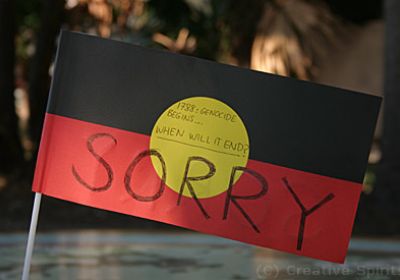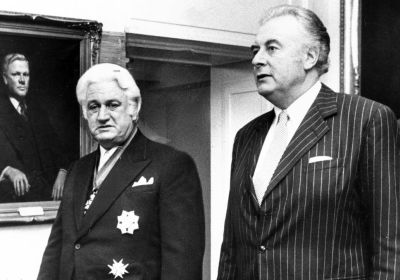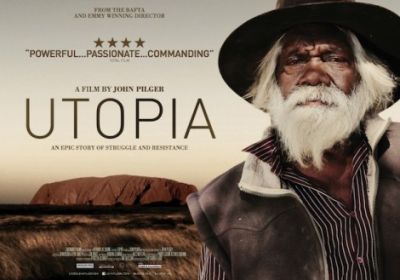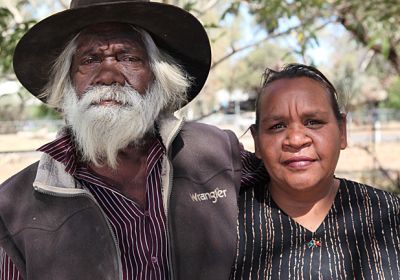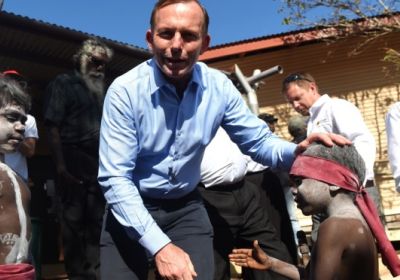
There are times when farce and living caricature almost consume the cynicism and mendacity in the daily life of Australia's rulers.
Across the front pages is a photograph of a resolute Tony Abbott with Aboriginal children in Arnhem Land, in Australia’s remote north. "Domestic policy one day," says the caption, "focus on war the next."


